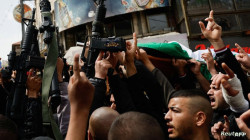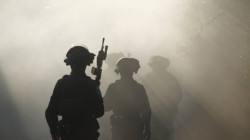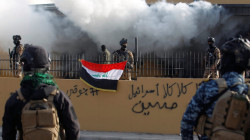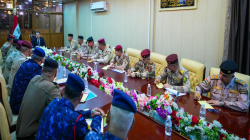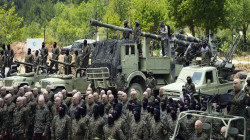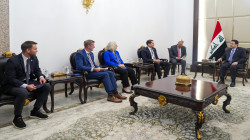Experts warn of "catastrophic" fallout if Iraq takes part in war against Israel
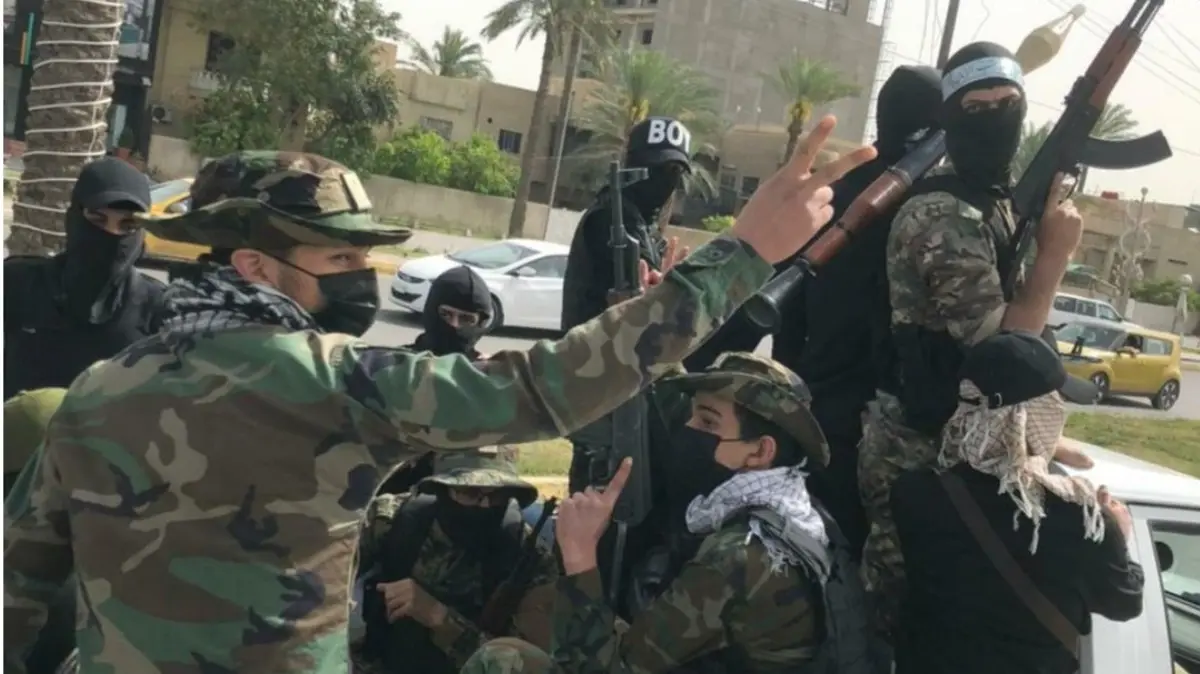
Shafaq News/ Security and political experts have warned that any Iraqi military response to Israel's recent strikes on Lebanon could trigger "catastrophic" repercussions, suggesting that Tel Aviv may retaliate with direct attacks on critical Iraqi infrastructure, including ports, oil refineries, and electricity grids.
On Tuesday, Israel launched missile strikes and air raids on southern Lebanon, leaving 558 dead and 1,835 injured, according to the latest figures from Lebanon’s Ministry of Health.
Risks Of Targeting Iraq
Security expert Saif Raad noted that Israeli Prime Minister Benjamin Netanyahu is attempting to drag the Axis of Resistance and the region into further escalation through the war in Lebanon, which has serious and wide-ranging implications for the region and Iraq.
Raad told Shafaq News Agency, "From a military perspective, the concept of 'unified fronts' is unlikely to result in effective action against the Zionist entity due to the vast distance. Any such move could embarrass the government and lead to sanctions against the country."
He added, "Iraq could be directly targeted by the Zionist entity, with strikes on sites such as the Basra port, oil refineries, or electricity systems. This would pose a significant challenge for both the government and armed factions."
Raad emphasized the importance of "carefully studying the situation from all angles and providing humanitarian and medical assistance to the Lebanese people, as urged by religious authority Ayatollah Mohammad Ali al-Sistani. Additionally, reducing diplomatic missions, as called for by Muqtada al-Sadr, would have an immediate impact."
Iraqi Resistance Response
Salam al-Jazaeri, a political bureau member of the Asa'ib Ahl al-Haq movement, said that Israel's open war on southern Lebanon compels "all honorable people" to intervene and support the Lebanese people and resistance.
Speaking to Shafaq News Agency, al-Jazaeri noted that the statement by Iraq's top Shi'ite cleric, Ayatollah Ali al-Sistani, was clear in defending Lebanon’s unity. “His call for a major relief campaign shows his understanding that the enemy will act brutally, killing and displacing indiscriminately," al-Jazaeri said.
"The Iraqi resistance uses tactical responses, including drones, missiles, and advanced projectiles, to strike back against the Zionist occupation," he said.
Al-Jazaeri stressed that resistance forces across Iraq, Lebanon, and Yemen possess advanced weaponry. “The more the enemy escalates, the more sophisticated the weapons the resistance will use," he said, adding that "the war will extend to air, land, and sea, as [Hezbollah’s Secretary-General Sayyed Hassan] Nasrallah has declared."
He also highlighted public willingness in Iraq to join the fight in Lebanon, though warned that Israel's powerful missile capabilities could complicate the conflict. "If Israel continues its indiscriminate killings, the response will come from all sides, using advanced weaponry," he said.
Threat To Regional Stability
Hassan Momani, a professor of international relations and conflict resolution at the University of Jordan, warned that if the escalation in Lebanon spirals out of control, especially if it opens a front similar to Gaza, it will have significant political, economic, and social repercussions for the region, including mass displacement.
“This comes at a time when the region has been suffering from unrest and conflicts since 2011,” Momani told Shafaq News Agency. “The region does not need additional escalation that would complicate the situation further.”
Meanwhile, Lebanese security expert and political analyst Hassan al-Alyan said, "Netanyahu is attempting to separate the fronts between the resistance in Lebanon and Gaza, and is trying to pressure the Lebanese government to force Hezbollah to halt its support. However, this has not and will not succeed."
Al-Alyan emphasized that "the Lebanese state has stood by the resistance, and the support for the resistance has only grown stronger despite the massacres committed by the Israeli enemy, which has violated all international resolutions with the backing and approval of the United States and complicit Arab governments. Without this support, Israel would not have dared to extend its aggression to Gaza, Lebanon, Iraq, Yemen, and Iran."
Iranian international law advisor Hadi Issa Daloul argued that "every war Israel enters shortens its lifespan, as its weapons drive it toward a path of destruction, especially since it fights these battles alone."
He told Shafaq News Agency that "the US provides Israel with financial and military aid but does not engage directly on the ground. As for the European Union, it is in a state of disarray due to the war in Ukraine. This makes a direct war difficult for Israel, which is why it resorts to long-range missile strikes."
Limited war? World War?
Security and strategic expert Alaa Al-Nashua has warned that Iraq could face disastrous consequences if it becomes directly involved in the conflict between Israel and Hezbollah in Lebanon. Al-Nashua described the ongoing hostilities as a "limited war" between Israel and a militant faction, with broader implications involving Iran, which provides significant military, economic, and political support to Hezbollah.
Speaking to Shafaq News Agency, Al-Nashua said, "This is an indirect confrontation between two major forces in the region: Israel and Iran. Iran backs Hezbollah and has proxies in countries that share direct or indirect borders with Israel, including Syria and Lebanon, while Iraq and Yemen are connected through solidarity."
On Iraq's potential involvement, he noted that "if Iranian-backed Iraqi armed factions move to support Hezbollah, Iraq could naturally become a party in the conflict. However, so far, these factions have mainly offered financial and moral support, with little military involvement. The chances of Iraq entering the war as a combatant against Israel are slim."
Al-Nashua stressed that any direct action by Iraqi factions against Israel would create a serious dilemma for the Iraqi government, placing it at odds with the US and the Western coalition, which controls Iraq's security and military assets. "A formal Iraqi military action against Israel would be catastrophic for both the government and the factions, as they are no match for Israel's airpower," he warned.
He downplayed the likelihood of a wider global conflict, stating, "There are no indications of a third world war. The major powers support Israel in its military campaigns, whether against Palestinians or Lebanese, who have become victims of Iran's unfulfilled promises of support."
